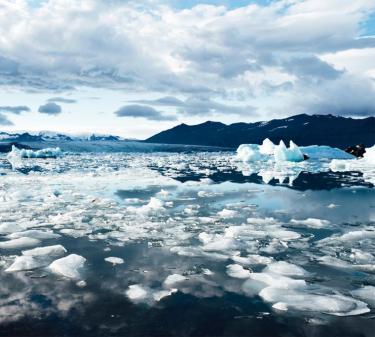- Managing your Practice
-
- Your Benefits
-

Introducing the ultimate Club MD experience
From work to play, and everything in between, we provide you with access to hundreds of deals from recognizable, best-in-class brands, elevating every facet of your life – from practice supports to entertainment, restaurants, electronics, travel, health and wellness, and more. Your Club MD membership ensures that these deals are exclusive to you, eliminating the need to search or negotiate.
Welcome to the ultimate Club MD experience. Your membership, your choices, your journey.
-
- Advocacy & Policy
-
- Collaboration
- News & Events
-

Stay Informed
Stay up to date with important information that impacts the profession and your practice. Doctors of BC provides a range of newsletters that target areas of interest to you.
Subscribe to the President's Letter
Subscribe to Newsletters
-
- About Us
-

Climate Change is a Major Healthcare Issue
August 29, 2019
President's Blog
We are used to considering climate change as the geographical impact on our natural environment. Certainly, as I stared at the Illecillewaet Glacier poking through the clouds across the valley from a peak outside of Revelstoke this weekend, I was struck by how far it has receded in the last few years. The waterfall flowing from this glacier is magnificent to see, and yet I am intensely saddened by the fact that it represents the erosion of this amazing wonder of nature.
Scientists across the world agree that climate change is escalating. We see this in the rising ocean temperatures, the calving of ice shield pieces the size of US states, the increasing intensity of storms and droughts, and uncontrollable forest fires. It is one thing to watch a polar bear struggle to find food in a changing landscape, it is quite another to watch escalating human suffering.
 How many people actually look at the melting ice and climate instability as a mounting healthcare crisis? I recently attended a conjoint meeting between the CMA and the Canadian Association of Physicians for the Environment, where recent data concerning the increased incidence of climate related medical conditions was discussed. Conditions such as fire smoke related asthma and COPD exacerbations, food insecurity and malnutrition due to crop failure, increased Lyme and West Nile disease due to rising vector presence, and many others are directly attributable to climate change.
How many people actually look at the melting ice and climate instability as a mounting healthcare crisis? I recently attended a conjoint meeting between the CMA and the Canadian Association of Physicians for the Environment, where recent data concerning the increased incidence of climate related medical conditions was discussed. Conditions such as fire smoke related asthma and COPD exacerbations, food insecurity and malnutrition due to crop failure, increased Lyme and West Nile disease due to rising vector presence, and many others are directly attributable to climate change.
Our Canada Health Act has at its core the desire to promote, protect, and restore health, so why is climate change not at the forefront of health discussions? Public surveys conducted by the CMA found that Canadians rank climate change and healthcare in their top 5 priorities for our upcoming Federal Election, alongside housing costs, the economy, and taxes. These two top priorities are intertwined. The public is listening and looking to the government to make change to stall the crisis. As a profession, we can educate and promote activities designed to lower our carbon footprint and reduce our dependency on fossil fuels. As individuals, we need to begin to shift our climate change dialogue in such a way that people are willing to make the difficult, yet necessary changes in their personal lifestyles to make an impact.
I often hear that people are reluctant to make change when many other countries in the world continue to escalate their emissions. Why us? Why now? The same argument could have been made years ago, when we invested in other public health measures such as clean water and publicly-funded vaccine programs for polio. Someone needs to go first.
CAPE (Canadian Association of Physicians for the Environment) and many other professional organizations have issued a call to action. I encourage everyone to get informed, get involved, and be the change our world needs to impact climate change. The very survival of our species depends on the actions we take now.
- Dr Kathleen Ross




